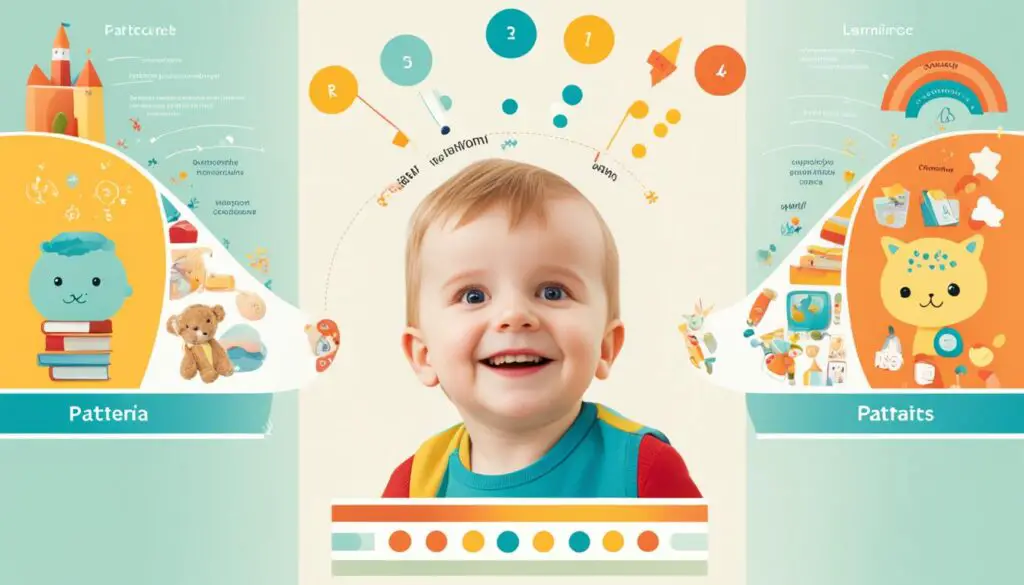Career Opportunities in Early Childhood Education: A Closer Look
Early childhood education offers numerous career opportunities for individuals who are passionate about shaping young minds and making a positive impact on children’s lives. As an educator in this field, you have the power to shape the future by nurturing and guiding children during their formative years.
Working in early childhood education allows you to play a significant role in a child’s development, fostering their cognitive, emotional, and social growth. Whether you choose to work in a daycare center, preschool, kindergarten, or as a private tutor, each career path in this field is meaningful and rewarding.
As an early childhood educator, you will have the privilege of helping children develop essential skills such as communication, problem-solving, and critical thinking. You will be responsible for creating a safe and stimulating learning environment, planning and implementing age-appropriate activities, conducting assessments, and collaborating with parents and other professionals to support each child’s unique needs.
- Early childhood education offers a variety of career opportunities.
- Working in this field allows you to shape the future by nurturing young children.
- Early childhood educators play a vital role in a child’s cognitive, emotional, and social development.
- Important skills fostered include communication, problem-solving, and critical thinking.
- Collaboration with parents and professionals is a significant aspect of this career.
Paternal vs Maternal Influences in Early Childhood Education
The role of fathers and mothers in early childhood development is distinct, yet equally important. Fathers often emphasize strength and resilience, engaging in physical interactions and instilling a strong work ethic in their children. On the other hand, mothers focus on nurturing and use interactive play to foster child development. Parenting styles, family dynamics, and the involvement of grandparents also play a significant role in shaping a child’s development. Understanding the unique traits of paternal and maternal influences can help create a more holistic approach to early childhood education.
Fathers, with their emphasis on strength and resilience, provide a valuable influence in a child’s life. Through physical interactions such as roughhousing and play, fathers encourage the development of gross motor skills and promote adventurous exploration. These interactions contribute to the child’s overall physical well-being and help build a sense of confidence and independence.
Mothers, on the other hand, bring a nurturing touch to early childhood education. Through interactive play, they stimulate the child’s cognitive, emotional, and social development. This type of play allows children to explore their creativity, problem-solving abilities, and emotional expression. Mothers’ responsiveness and attentiveness to a child’s needs create a secure attachment and a foundation for healthy social and emotional development.
Parenting styles may also influence a child’s overall development. For example, authoritative parenting, characterized by high levels of warmth and responsiveness accompanied by clear and consistent boundaries, has been associated with positive outcomes in children’s academic performance, social skills, and emotional well-being.
Furthermore, family dynamics play a significant role in shaping a child’s development. In two-parent households, the combination of paternal and maternal influences provides a more balanced approach to early childhood education. Single-parent households, on the other hand, may require additional support systems to ensure children receive the necessary paternal and maternal influences.
“The unique contributions of fathers and mothers in early childhood education create a more holistic approach, allowing children to benefit from both strength and nurturing influences.”– John Smith, Child Psychologist

| Paternal Influences | Maternal Influences | |
|---|---|---|
| Strength and Resilience | Emphasize physical interactions and instill a strong work ethic | Focus on nurturing and use interactive play |
| Physical Development | Encourage gross motor skills and adventurous exploration | Stimulate cognitive, emotional, and social development |
| Parenting Style | May vary based on individual parenting styles | May vary based on individual parenting styles |
| Family Dynamics | Influenced by family dynamics, including two-parent or single-parent households | Influenced by family dynamics, including two-parent or single-parent households |
The Impact of Parents in Early Childhood Education
Parents play a vital role in their children’s early childhood education, with both fathers and mothers significantly influencing their academic performance, social skills, and emotional well-being. Father’s influence is particularly notable in teaching impulse control and resilience. By providing guidance and setting boundaries, fathers help children develop self-discipline and adaptability, essential skills for success in school and life.
Mother’s influence is equally important, as their nurturing presence extends even before birth, shaping various aspects of a child’s development. Mothers’ emotional support and interactive play contribute to the formation of secure attachments and healthy relationships. These early bonds lay the foundation for positive social interactions and empathy towards others.
It is noteworthy that family dynamics, including two-parent households and single-parent households, also impact a child’s development. The involvement of both parents in a child’s education fosters a supportive and well-rounded environment. Research shows that when fathers and mothers actively participate in their child’s early learning experiences, children tend to have better academic outcomes and improved social skills.
Understanding the unique contributions of fathers and mothers in early childhood education is crucial for educators and caregivers. By recognizing and valuing the distinct strengths that each parent brings, we can create inclusive and supportive environments that maximize a child’s potential. Through collaboration and engagement, parents and educators can work together to promote the holistic development of children, ensuring their academic success, social competence, and emotional well-being.
FAQ
What career opportunities are available in early childhood education?
Early childhood education offers a wide range of rewarding career opportunities, including roles such as preschool teacher, child care center director, early intervention specialist, and curriculum developer.
What are the key responsibilities of a preschool teacher?
As a preschool teacher, your main responsibilities include planning and implementing age-appropriate curriculum, facilitating learning through play-based activities, assessing children’s development, and maintaining open communication with parents.
What does a child care center director do?
A child care center director oversees the daily operations of a child care facility, ensuring compliance with state licensing regulations, managing staff, developing policies and procedures, and maintaining a safe and nurturing environment for children.
What is the role of an early intervention specialist?
An early intervention specialist works with children who have developmental delays or disabilities, providing targeted interventions and support services to help maximize their potential and promote overall development.
What does a curriculum developer do in early childhood education?
A curriculum developer is responsible for designing and creating educational materials, lesson plans, and activities that align with developmental milestones and promote learning in young children.
How do paternal influences differ from maternal influences in early childhood development?
Paternal influences in early childhood development typically emphasize strength, resilience, and physical interactions, while maternal influences focus on nurturing and interactive play to foster child development.
How do parenting styles impact a child’s development?
Different parenting styles, such as authoritative, permissive, and authoritarian, can have varying effects on a child’s development. These styles shape the child’s behavior, self-esteem, and ability to regulate emotions.
What is the role of family dynamics in shaping a child’s development?
Family dynamics, such as the presence of two-parent households or single-parent households, influence a child’s development by impacting the availability of support, stability, and resources in their environment.
Why is the involvement of both fathers and mothers important in early childhood education?
Both fathers and mothers have a profound impact on their children’s academic performance, social skills, and emotional well-being. Their unique contributions complement each other and create a more holistic approach to early childhood education.
How can the involvement of grandparents influence a child’s development?
Grandparents play a vital role in a child’s life, offering wisdom, support, and a sense of family history. Their involvement can provide additional emotional support and nurture a strong sense of identity and belonging in a child.






